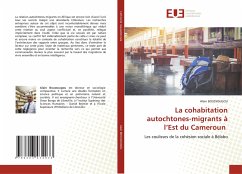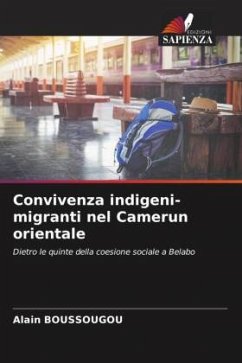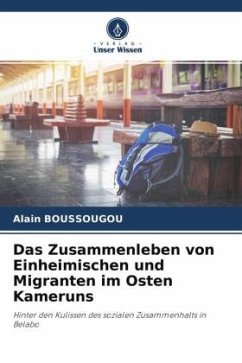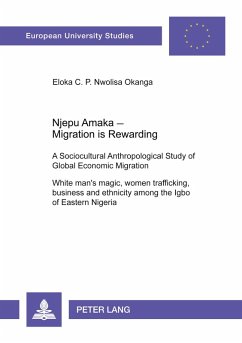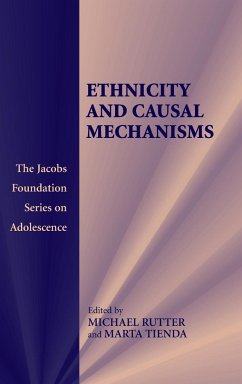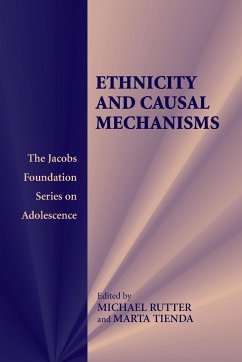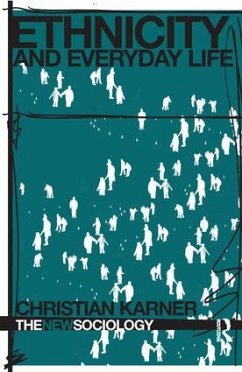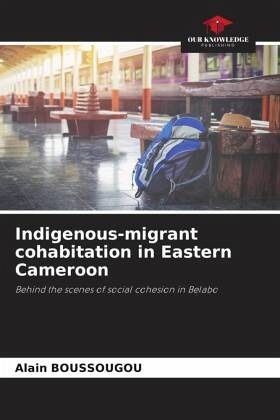
Indigenous-migrant cohabitation in Eastern Cameroon
Behind the scenes of social cohesion in Belabo
Versandkostenfrei!
Versandfertig in 6-10 Tagen
45,99 €
inkl. MwSt.

PAYBACK Punkte
23 °P sammeln!
The indigenous-migrant relationship in Africa is still far from having revealed all its secrets, despite an abundant literature. The research undertaken on this subject is undoubtedly dense but seems to have settled for a monolithic vision that reduces this relationship to the sole aspect of conflict and, at the same time, implicitly relegates to oblivion the idea that social life is by nature complex. Conflict is undeniably part of it, but it cannot, and even less so in a context of cohabitation, constitute the totality of the architecture of relations between groups. Instead of leading the r...
The indigenous-migrant relationship in Africa is still far from having revealed all its secrets, despite an abundant literature. The research undertaken on this subject is undoubtedly dense but seems to have settled for a monolithic vision that reduces this relationship to the sole aspect of conflict and, at the same time, implicitly relegates to oblivion the idea that social life is by nature complex. Conflict is undeniably part of it, but it cannot, and even less so in a context of cohabitation, constitute the totality of the architecture of relations between groups. Instead of leading the reader along this path, for lack of relevant material, this text starts from this neglect and directs the research towards what allows communities brought together most often by the chance of migration to live together and in good understanding.



